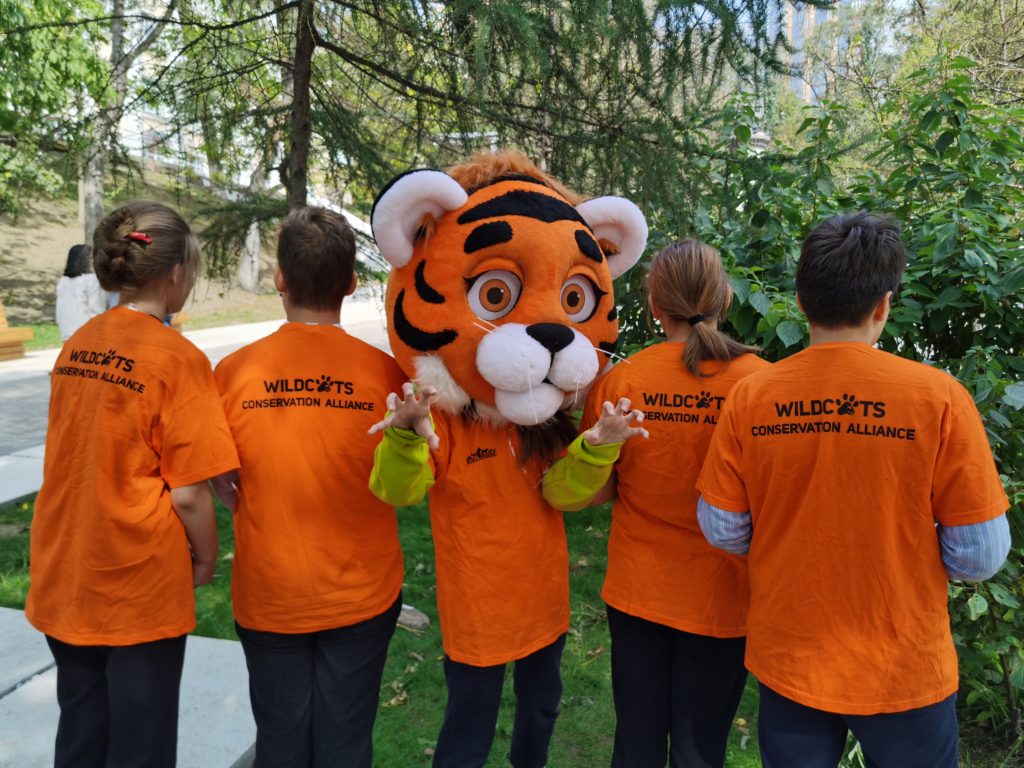The recent report from Phoenix Fund in Vladivostok highlights some of the problems but also some of the opportunities caused by a year of suffering under the COVID-19 pandemic.
This report is from the first of three year funding from WildCats for work across 5 Protected Areas (PAs) in the Russian Far East. The project team work closely with the staff of the PAs in collaboration with other NGOs such as WCS, to support the implementation and continued development of SMART patrol monitoring software across these areas. The benefits of SMART are established and this software and others like it are now used across the world to formalise and collect data whilst on patrol. The analysis of this data, as can be seen in the report, provides a great deal of information that can be used to inform the management of the PA. SMART also enables the rangers to get instant feedback for the work they undertake on a daily basis and receive incentives that “foster a sense of pride and satisfaction for all members of the teams”.
In 2020, the rangers of the Land of the Leopard National Park had to pay more attention to the recently added new territories of the Far Eastern Marine Reserve where protection of the sea and coastal zone had significantly weakened in the last few years and an area of the Gamov Peninsula that is soon to become part of the national park. Economic losses due to COVID-19 in the area, saw locals turn their focus to the landscape and the waterways for a source of livelihood. As a result of both these factors, the number of reported violations doubled.
Phoenix Fund does not just work with National Park rangers, but educates the local community about the importance of tiger/leopard conservation, taking children outside and connecting them with nature, they foster a positive attitude towards rare predators and increase peoples willingness to engage in the environment protecting the habitat of the Amur leopard and tiger.
COVID-19 impacted the education of children around the world and it was the same in these remote areas of the Russian Far East. Unstable internet or lack of computers affected formal lessons and eco-classes alike. Results from Phoenix suggest that “the number of children and adults educated by our educators has decreased by 3 times since the beginning of the pandemic. For comparison: in 2019, the teachers held 968 events for 18,733 people. In 2020, only 465 events were held for 5,442 people.”
Nevertheless, teachers trained by Phoenix Fund did run online classes and communities did take part in environmental activities in the administrative districts of Primorye, namely Pozharsky, Khasansky, and Terneisky and in Vladivostok city. In Vladivostok, the Eco-Theatre ran 32 drama lessons and 11 theatrical eco-performances were showed.
Project activities and achievements:
- The total distance patrolled on all patrols was 411,905 km in 2020 compared to 344,616 km in 2019.
- Rangers spent far more time on patrols than last year (54,254 hours in 2019 and 70,548 hours in 2020).
- 309 violations in the protected area including trespassing and illegal hunting were revealed at five project sites. (174 violations were revealed in 2019).
- 12 feedback meetings were held with PA managers and rangers.
- 20 legal cases were filed with the courts.
- 6 rifles were seized and confiscated.
- 927,000 roubles (12,527 USD) were paid in fines by violators.
- 5,442 children increased their level of environmental awareness, including knowledge of Amur tigers and leopards compared to 18,000 in 2019.
- The Annual Art Competition received 1,872 drawings from children between 5 and 18 years of age from Primorsky and Khabarovsky Krais, Amurskaya and Jewish Autonomous provinces, the Republic of Crimea, Donetsk People’s Republic, Republic of Kazakstan and the Republic of Korea.
- An educational eco-workshop for 50 educators and outreach specialists representing eco-centres, eco-clubs, and protected areas of the south of the Russian Far East was held before lockdown.
- 465 lessons and nature-oriented events were held.
- 32 drama lessons were given at the Eco-Theatre in Vladivostok and 11 theatrical eco-performances were performed.
- 5,000 people were involved in Tiger Day celebrations
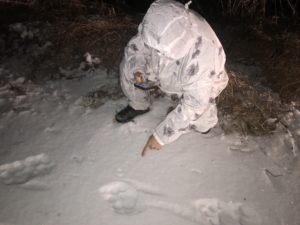
Phoenix Fund – tiger tracks
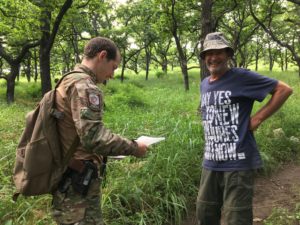
Checking documents © Land of the Leopard National Park
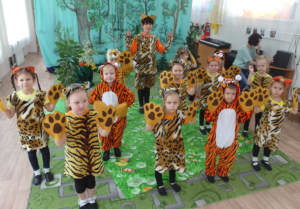
Tiger Day in Birobidzhan2020 © Bastak Nature Reserve
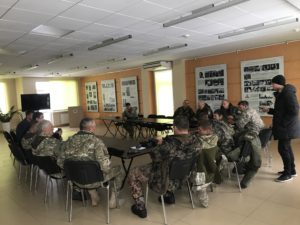
Meeting rangers © Phoenix
This project is made possible by dedicated support from Dreamworld Wildlife Foundation and Kolmarden Foundation.
You can read the full report here
